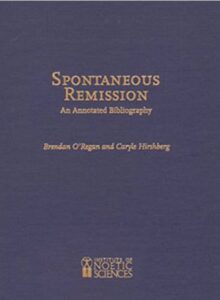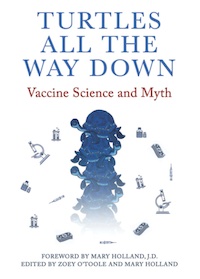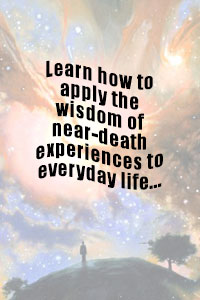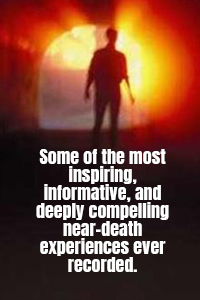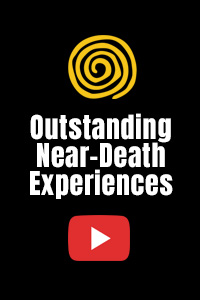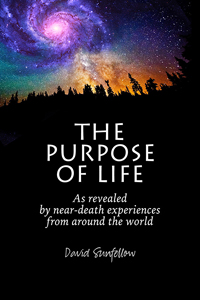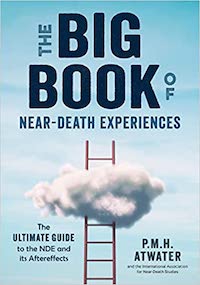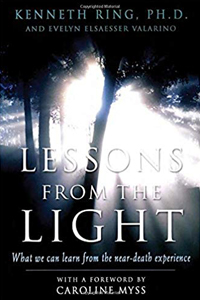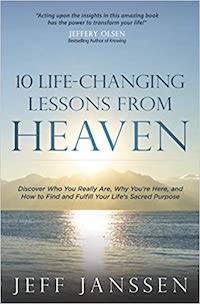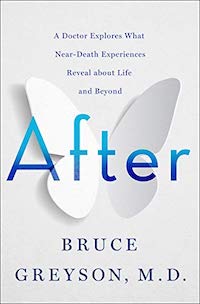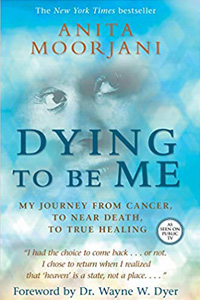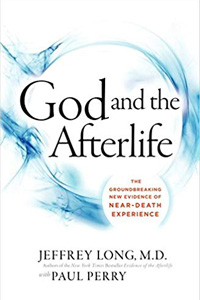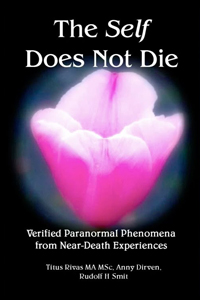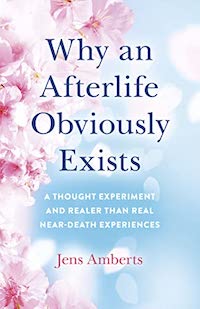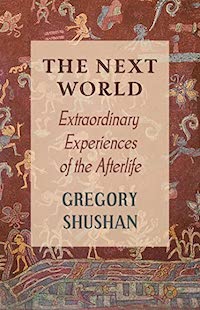Radical Remission: Surviving Cancer Against All Odds
By Kelly A. Turner, PhD
Amazon Description:
In her New York Times bestseller, Radical Remission: Surviving Cancer Against All Odds, Dr. Kelly A. Turner, founder of the Radical Remission Project, uncovers nine factors that can lead to a spontaneous remission from cancer — even after conventional medicine has failed.
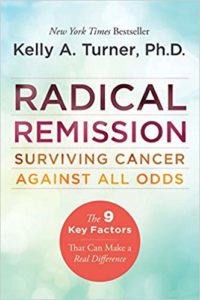 While getting her Ph.D. at the University of California, Berkley, Dr. Turner, a researcher, lecturer, and counselor in integrative oncology, was shocked to discover that no one was studying episodes of radical (or unexpected) remission — when people recover against all odds without the help of conventional medicine, or after conventional medicine has failed. She was so fascinated by this kind of remission that she embarked on a ten month trip around the world, traveling to ten different countries to interview fifty holistic healers and twenty radical remission cancer survivors about their healing practices and techniques. Her research continued by interviewing over 100 Radical Remission survivors and studying over 1000 of these cases. Her evidence presents nine common themes that she believes may help even terminal patients turn their lives around.
While getting her Ph.D. at the University of California, Berkley, Dr. Turner, a researcher, lecturer, and counselor in integrative oncology, was shocked to discover that no one was studying episodes of radical (or unexpected) remission — when people recover against all odds without the help of conventional medicine, or after conventional medicine has failed. She was so fascinated by this kind of remission that she embarked on a ten month trip around the world, traveling to ten different countries to interview fifty holistic healers and twenty radical remission cancer survivors about their healing practices and techniques. Her research continued by interviewing over 100 Radical Remission survivors and studying over 1000 of these cases. Her evidence presents nine common themes that she believes may help even terminal patients turn their lives around.
…………..
The Nine Key Factors That Can Make A Real Difference
1. Radically changing your diet.
2. Taking control of your health.
3. Following your intuition.
4. Using herbs and supplements.
5. Releasing suppressed emotions.
6. Increasing positive emotions.
7. Embracing social support.
8. Deepening your spiritual connection.
9. Having strong reasons for living.
…………..
…………..
9 Key Factors Affecting Radical Remission From Cancer
By Dr. Lissa Rankin
When I was researching my book Mind Over Medicine, I stumbled across the Spontaneous Remission Project, put together by the Institute of Noetic Sciences, which collected over 3,500 case studies published in medical literature about people who experienced spontaneous remissions from seemingly “incurable diseases.”
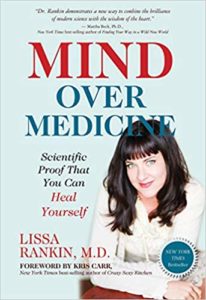 Most of the case studies revolved around people with Stage 4 cancers who either declined conventional treatment or were given treatment deemed by doctors to be inadequate for cure. But the Spontaneous Remission Project also includes case studies of people who had remissions from heart failure, autoimmune diseases, a gunshot wound to the head, and HIV.
Most of the case studies revolved around people with Stage 4 cancers who either declined conventional treatment or were given treatment deemed by doctors to be inadequate for cure. But the Spontaneous Remission Project also includes case studies of people who had remissions from heart failure, autoimmune diseases, a gunshot wound to the head, and HIV.
The question keeping me awake at night after reading these case studies was “How did they do this? Were these people just lucky, or did they do something proactive?”
None of the case studies even commented on what had happened. But since I wrote Mind Over Medicine, people have been telling me their stories, and none of the people who experienced spontaneous remissions strike me as lucky. Every single one of them was an active participant in their cure.
Radical Remission
I’m not the only one who was wildly curious about whether people experiencing cures from “incurable” illnesses were doing something to improve their chances of cure. Kelly A. Turner, PhD, studies people who have experienced what she calls “radical remissions.” She prefers the term “radical remission” because she says there’s nothing “spontaneous” about these remarkable cures.
Kelly and I became friends when I was researching Mind Over Medicine, and I shared some of Kelly’s work in my book. But her research has been ongoing, and Kelly’s new book Radical Remission: The Nine Key Factors That Can Make A Real Difference launches today.
What Kelly discovered is that the people who experienced radical remissions were not passively sitting by, waiting for a miracle. They were making nine significant changes in their lives, only two of which might be recommended by a forward-thinking physician…
Radical Remission doesn’t make any unrealistic claims, suggesting that if people follow the 9 tips shared in this book, their cancers will go away. But it does make a case for ensuring that any cancer treatment include not just surgery, chemotherapy, and radiation, but also the essential “treatments” that these remarkable patients embraced in their own healing journeys.
9 Key Factors
So what were the 9 key factors that these patients with radical remissions employed?
1 – Radically changing your diet.
2 – Taking control of your health.
3 – Following your intuition.
4 – Using herbs and supplements.
5 – Releasing suppressed emotions.
6 – Increasing positive emotions.
7 – Embracing social support.
8 – Deepening your spiritual connection.
9 – Having strong reasons for living.
Dr. Turner goes into much more detail about these in the book. In fact, each factor has its own chapter, as well as stories of how patients used these factors to participate in their healing journey.
It’s Not Just Treatment; It’s Prevention
Radical Remission is worth reading not just for cancer patients and those who love them, but for anyone interested in cancer prevention. Dr. Turner’s research is observational data, meaning that we can’t prove that these factors caused the cancer remissions. We can only observe that these patients shared these life changes in common.
But shouldn’t we consider making these kinds of changes anyway? Why wait until we get cancer? Why not be proactive now?
Radical Remission offers practical tips for how to make such changes, whether you’re dealing with cancer or trying to prevent it.
…………..
Mind Over Medicine: Scientific Proof That You Can Heal Yourself
By Lissa Rankin
Amazon Description:
We’ve been led to believe that when we get sick, it’s our genetics. Or it’s just bad luck — and doctors alone hold the keys to optimal health. For years, Lissa Rankin, M.D., believed the same. But when her own health started to suffer, and she turned to Western medical treatments, she found that they not only failed to help; they made her worse. So she decided to take matters into her own hands.



Using extraordinary cases of spontaneous healing, Dr. Rankin shows how thoughts, feelings, and beliefs can alter the body’s physiology. She lays out the scientific data proving that loneliness, pessimism, depression, fear, and anxiety damage the body, while intimate relationships, gratitude, meditation, sex, and authentic self-expression flip on the body’s self-healing processes.
In the final section of the book, you’ll be introduced to a radical new wellness model based on Dr. Rankin’s scientific findings. Her unique six-step program will help you uncover where things might be out of whack in your life — spiritually, creatively, environmentally, nutritionally, and in your professional and personal relationships — so that you can create a customized treatment plan aimed at bolstering these health-promoting pieces of your life. You’ll learn how to listen to your body’s “whispers” before they turn to life-threatening “screams” that can be prevented with proper self-care, and you’ll learn how to trust your inner guidance when making decisions about your health and your life.
By the time you finish Mind Over Medicine, you’ll have made your own Diagnosis, written your own Prescription, and created a clear action plan designed to help you make your body ripe for miracles.
…………..
…………..
“A placebo is a simulated or otherwise medically ineffectual treatment for a disease or other medical condition intended to deceive the recipient. Sometimes patients given a placebo treatment will have a perceived or actual improvement in a medical condition, a phenomenon commonly called the placebo effect. The placebo effect consists of several different effects woven together, and the methods of placebo administration may be as important as the administration itself.”
…………..
…………..
…………..
Amir Raz (Departments of Psychiatry, Neurology and Neurosurgery, and Psychology) is the Canada Research Chair in the Cognitive Neuroscience of Attention. He is also a researcher affiliated with one of McGill’s teaching hospitals, the Sir Mortimer B. Davis Jewish General Hospital, and the Lady Davis Institute for Medical Research. He works closely with neuroscientists at the Montreal Neurological Institute as well as other departments, including Psychology, in McGill’s Faculty of Science.
…………..
Cured: The Life-Changing Science of Spontaneous Healing
By Jeffrey Rediger M.D.
Amazon Description:
When it comes to disease, who beats the odds — and why?
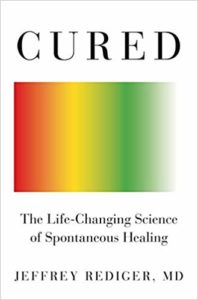

Enter Dr. Jeff Rediger, who has spent over 15 years studying spontaneous healing, pioneering the use of scientific tools to investigate recoveries from incurable illnesses. Dr. Rediger’s research has taken him from America’s top hospitals to healing centers around the world — and along the way he’s uncovered insights into why some people beat the odds.
In Cured, Dr. Rediger digs down to the root causes of illness, showing how to create an environment that sets the stage for healing. He reveals the patterns behind healing and lays out the physical and mental principles associated with recovery: first, we need to physically heal our diet and our immune systems. Next, we need to mentally heal our stress response and our identities.
Through rigorous research, Dr. Rediger shows that much of our physical reality is created in our minds. Our perception changes our experience, even to the point of changing our physical bodies — and thus the healing of our identity may be our greatest tool to recovery.
Ultimately, miracles only contradict what we know of nature at this point in time. Cured leads the way in explaining the science behind these miracles, and provides a first-of-its-kind guidebook to both healing and preventing disease.
…………..
For more information about near-death experiencer Anita Moorjani, go here.
…………..
Heal
A documentary film that takes us on a scientific and spiritual journey where we discover that by changing one’s perceptions, the human body can heal itself.
The latest science reveals that we are not victims of unchangeable genes, nor should we buy into a scary prognosis. The fact is we have more control over our health and life than we have been taught to believe. This film will empower you with a new understanding of the miraculous nature of the human body and the extraordinary healer within us all.
HEAL not only taps into the brilliant mind’s of leading scientists and spiritual teachers, but follows three people on actual high stakes healing journeys. Healing can be extremely complex and deeply personal, but it can also happen spontaneously in a moment. Through these inspiring and emotional stories we find out what works, what doesn’t, and why.
Featuring Dr. Deepak Chopra, Anita Moorjani, Marianne Williamson, Dr. Michael Beckwith, Dr. Bruce Lipton, Dr. Joe Dispenza, Anthony William ‘ Medical Medium’, Dr. Bernie Siegel, Gregg Braden, Dr. Joan Borysenko, Dr. David Hamilton, Dr. Kelly Brogan, Rob Wergin, Dr. Kelly Turner, Peter Chrone, Dr Darren Weissman, and Dr Jeffrey Thompson.
For more information about near-death experiencer Anita Moorjani, go here.
For more information about near-death experiencer Anthony William, go here.
…………..
Can We Reverse Aging? The Astonishing Power Of The Human Mind
By Avinash Anand Singh
Forbes
June 2, 2020
The human mind has always been an object of great astonishment. A tremendous amount of research has been done to understand the functioning and power of the brain. Scientists have pushed the boundaries of possibilities and have introduced us to facts that have left us flabbergasted.
In the year 1981, renowned Harvard social psychologist Ellen Langer conducted one such study (subscription required). She was on a mission to test that if we could turn the clock back psychologically, could we also turn it back physically? She was going to test whether our attitude, beliefs and mindset played a role in our physical health, more specifically, in our aging process.
She invited eight men in their late 70s to live in a residential retreat for seven days. The environment was recreated to match the socio-physical environment of the year 1959. The men were asked to talk, feel and pretend as if they were living in the era when they were in their prime.
Upon arrival at the retreat, the men were asked to carry their own luggage, no matter how heavy it was. Some stooped while others used canes while walking. No assistance was provided as they entered their new home. They all went through various tests that measured their physical and mental functions, including cognition, memory, flexibility, hearing and vision.
The home had no mirrors and only contained portraits from their younger days. They were welcomed by Ed Sullivan on a black and white television. All the books and magazines were from the year 1959. The radio played oldie favorites such as Perry Como and Jack Benny. Twice a day, researchers led discussions on topics like the need for bomb shelters to protect the country against Soviet Powers, Castro’s advance in Havana, and other topics that were popular in that era.
Participants were asked to speak about all these events using the present tense as if they were living it now. They were playing out this “as if” scenario and not merely thinking about it.
As the study neared its end, participants improved in all parameters they were tested on in the beginning. The man who came in on a wheelchair walked out with a cane. Another man who couldn’t wear his socks unassisted hosted the final evening dinner party. On the second to last day, men who looked frail and weak were playing touch football on the lawn. Improvements were marked on parameters of physical strength, hearing, vision, IQ, gait, posture, dexterity, memory, decreased symptoms of arthritis and overall well-being. The intelligence score was significantly higher for 63% of the participants. Langer later said, “Wherever you put the mind, you are necessarily putting the body.”
With her study, Langer offered us the following learnings:
1. Setting the right perception of ourselves and our environment is crucial.
2. Our mindset has a much greater impact on our health and aging than we believe.
3. By changing our mindset, we can bring a lot of change to our overall well-being.
4. As we grow old, loss of memory and good health may be avoidable.
Hence we understand that our mindset and self-perception has a tremendous impact on us. As a coach with clients who face various challenges, in almost all cases, the top priority is bringing a shift in perception and creating a state of well-being.
Now the question is: How do we put the above-mentioned learning into action?
Here are five simple ways to create a state of well-being:
1. Think ‘as if.’ Start living your idea of perfect health. Taking a cue from the study mentioned above, can you let go of the idea that you are growing old and weak? Can you start believing that you are a strong, healthy and happy person, and living as such? Try this out with complete awareness, and you might see changes in yourself soon.
2. Practice visualization. Much research has been done on visualization and how it can create changes in physical health. It is a great tool to practice. Before sleeping at night, define and hold on to the picture of your perfect health, your confident self and your happy state. Do it daily for 60 days.
3. Focus on your self-talk: There is a conversation going on inside your head incessantly. A good conversation makes you feel good, and a bad one makes you feel bad. Your emotions are controlled by various chemicals released in your body, the roots of which stem from your thoughts and words. Can you take a bit of control over your self-talk? Can you start speaking more positive words infused with hope, faith and conviction? Try this now, and see an instant shift in your feelings.
4. Expand your inner database. We all have our own library within our mind that has infinite knowledge, beliefs and ideas. We can act only on the basis of this database. Consciously work to fill your database with concepts and studies like the above that help you grow in life. Consistently seek the company of people who think and talk on positive lines. Read books that challenge and expand your thinking.
5. Invest in your development. To shift your perception, beliefs and thought process, consider whether a coach or mentor could help you break through and reach new heights.
Change comes when you decide to take new action. Reading, reflecting and analyzing are good, but without progressive and consistent action, they are merely seeds ripe with possibility.
It’s the perfect time to rise, challenge our limiting beliefs and create a new reality for ourselves. I look forward to hearing what your transformation story looks like.
…………..
Related Links:
• Near-Death Experiences & Miraculous Healings
• Spontaneous Remission: An Annotated Bibliography (pdf download)
• Wikipedia on The Placebo Effect
• Harvard-Wide Program in Placebo Studies (PiPS)
• Radical Remission Website
• Radical Remission Project on Facebook
• Radical Remission Project on Twitter
• Radical Remission Project on YouTube
• Lissa Rankin Website
• Lissa Rankin on Facebook
• Lissa Rankin on Twitter


